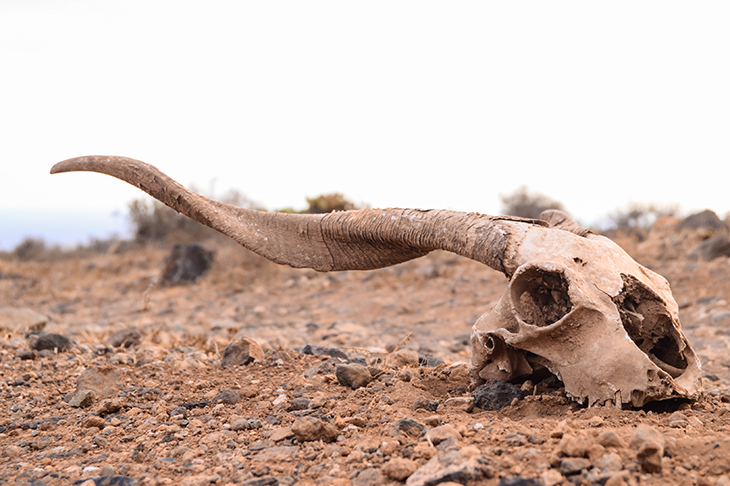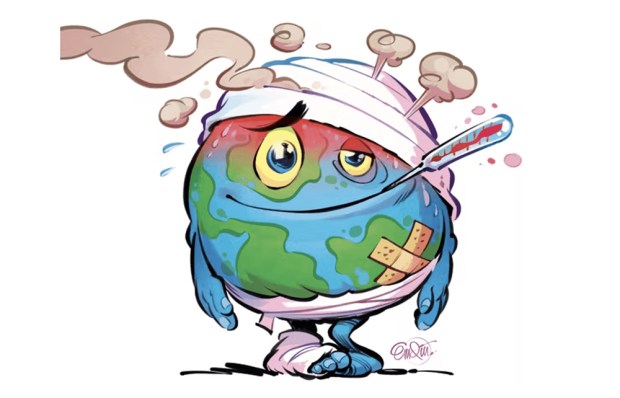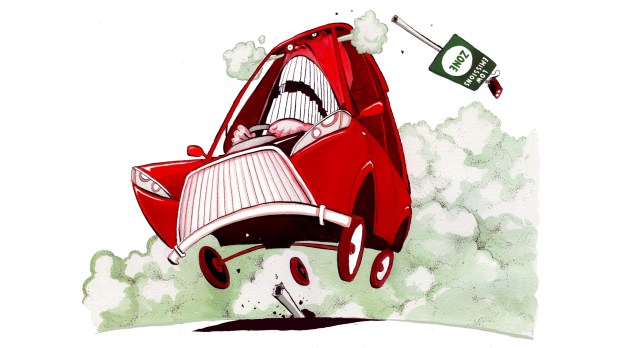Anyone watching the BBC’s News at Ten on Monday would have been surprised to learn that economic growth poses a dire threat to the future of life on this planet. We’re used to hearing this from climate change campaigners, but I’ve always taken such claims with a pinch of salt, suspecting that the anti-capitalist left is distorting the evidence. Apparently not. ‘One million species at risk of imminent extinction according to a major UN report,’ intoned the BBC. ‘It says the Earth’s ecosystems are being destroyed by the relentless pursuit of economic growth.’ So does this mean the Extinction Rebellion protestors are right?
I decided to do some digging to see if one million species really do ‘face extinction in the next few decades’, as the BBC put it. That claim is based on a report by the UN’s Intergovernmental Science-Policy Platform on Biodiversity and Ecosystem Services (IPBES), but it hasn’t been published yet. All I could find online was a press release put out by the IPBES and a ‘summary’ of the report ‘for policymakers’. The press release states: ‘The report finds that around one million animal and plant species are now threatened with extinction, many within decades.’ It gives no source for this beyond the as-yet-unpublished report, but the summary makes it clear that it’s partly based on data from the International Union for Conservation of Nature (IUCN) Red List of Threatened Species.
The IUCN’s Red List website says that ‘more than 27,000’ species ‘are threatened with extinction’. So how did the IPBES arrive at the one million figure? The key passage in the summary for policymakers reads as follows: ‘An average of around 25 per cent of species in assessed animal and plant groups are threatened, suggesting that around one million species already face extinction, many within decades, unless action is taken.’ The word ‘suggesting’ is doing a lot of work there. On the Red List website, it says 98,500 species have been ‘assessed’ — and the IPBES worked out what percentage 98,500 was of the total number of species and multiplied the 27,000 figure accordingly. That’s a difficult calculation to make, given that the number of species in the world is unknown. The most reliable estimate is 8.7 million (with a margin of error of plus or minus 1.3 million), but even the compilers of that stat acknowledge that 86 per cent of all species on land and 91 per cent of those in the seas have yet to be discovered, described and catalogued.
So how exactly did the IPBES arrive at the magic one million number? It seems we’re just supposed to take it on faith, which the BBC duly did. What about the IPBES’s claim that ‘around 25 per cent of species… are threatened’? That seems a little pessimistic, given that the number of mammals to have become extinct in the past 500 years or so is around 1.4 per cent and only one bird has met the same fate in Europe since 1852. Not bad when you consider how much economic growth there’s been in the past 167 years. So what does ‘threatened’ mean? The IPBES is using the IUCN’s definition, which is ‘at high risk of extinction in the wild’. Rather implausibly, the IUCN includes species in this category that it designates as ‘vulnerable’, which it defines as facing a ‘probability of extinction in the wild’ of ‘at least 10 per cent within 100 years’. About half the species the IPBES includes in its 25 per cent figure are in this ‘vulnerable’ category.
Let’s return to the News at Ten. The BBC newsreader, summarising the (unpublished) IPBES report, said that 40 per cent of amphibians are among those species ‘at risk of imminent extinction’. Sure enough, that 40 per cent figure appears in the IPBES press release and on the Red List website. But about a third of those amphibians fall into the ‘vulnerable’ category, so describing their extinction as ‘imminent’ is a bit of a stretch. It’s like saying that because Manchester City faces a 10 per cent risk of being relegated in the next 100 years, the club is ‘at risk of imminent relegation’. For those who don’t follow football, Man City look likely to be crowned Premier League champions on Saturday.
No doubt our ‘way of life’ does pose a threat to some species, even if it’s not as many as the climate change alarmists say. But it’s a pity the BBC decided not to interrogate these claims and just regurgitated a press release.
Got something to add? Join the discussion and comment below.
Get 10 issues for just $10
Subscribe to The Spectator Australia today for the next 10 magazine issues, plus full online access, for just $10.
You might disagree with half of it, but you’ll enjoy reading all of it. Try your first month for free, then just $2 a week for the remainder of your first year.















Comments
Don't miss out
Join the conversation with other Spectator Australia readers. Subscribe to leave a comment.
SUBSCRIBEAlready a subscriber? Log in